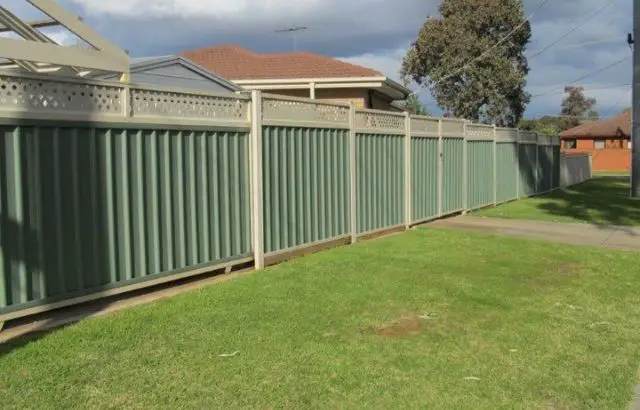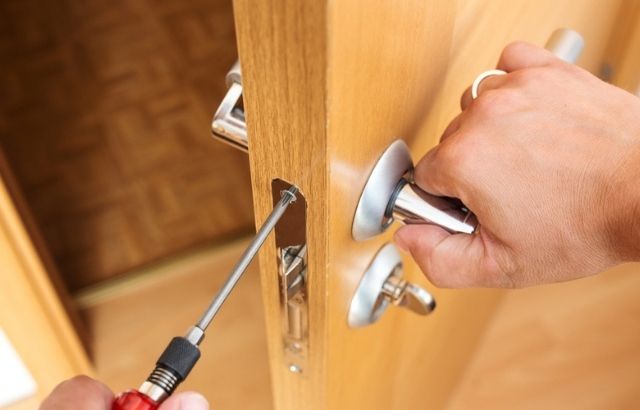Smoke detectors are essential safety devices in every home and commercial space to alert the occupants in case of fire emergencies. However, the constant beeps or chirps from smoke detectors can be a nuisance, especially when they keep going off for no apparent reason. In this guide, I will teach you how to stop smoke detector from chirping or beeping.
While these beeps usually indicate low battery or malfunction, ignoring them can compromise your safety. Similarly, scrambling to mute them by removing the battery can damage the device and put you at high risk.
Therefore, it is important to understand what causes smoke detectors to beep, how to troubleshoot the problem, and, ultimately, how to stop them from chirping.
This Home Affluence post will explore why smoke detectors beep or chirp, including low battery, sensor issues, or environmental factors such as dust or humidity:
- Identify the type of smoke detector
- Identify the chirping or beeping sound
- Check the battery of the smoke detector
- Replace the battery of the smoke detector
- Clean the smoke detector
- Reset the smoke detector
- Replace the smoke detector
- Check the wiring of the smoke detector
- Check the circuit breaker
- Check the hush button
- Check the alarm test button
- Check the expiry date
- Replace the entire smoke detector system
- Test the smoke detector again
- Maintain the smoke detector system regularly
We will also provide practical steps to troubleshoot and solve these problems, whether you have a hardwired or battery-operated smoke detector.
How To Stop Smoke Detector from Chirping Or Beeping
1. Identify the type of smoke detector
Suppose you find yourself in a situation where your smoke detector is chirping or beeping. In that case, it is important to identify the type of smoke detector you have to address the issue properly.
There are two main types of smoke detectors: ionization and photoelectric. Ionization smoke detectors perform to detect flames quickly, while photoelectric smoke detectors are better at detecting smoldering fires. Once you identify your type of smoke detector, you can address the issue further.

If your smoke detector is chirping, it may indicate a low battery or that the detector needs to be replaced.
Check and replace the battery to ensure your smoke detector continues functioning properly.
If you have a photoelectric smoke detector that continues to beep, it may indicate a build-up of dust or debris interfering with the detector’s sensitivity.
In this case, carefully cleaning the detector with a soft brush or compressed air can help resolve the issue.
2. Identify the chirping or beeping sound
To stop a smoke detector from chirping or beeping, you first must identify the source of the problem.
In most cases, a chirping or beeping sound from a smoke detector indicates that the battery needs to be replaced. However, other possible causes exist, such as a malfunctioning smoke detector.

Before determining the cause of the chirping or beeping, it is important to listen carefully and locate the source of the sound.
Once you find the cause of the problem, you can take the appropriate steps to stop the noise and ensure the smoke detector is functioning properly.
3. Check the battery of the smoke detector
With a smoke detector from chirping or beeping, it is important to check the device’s battery. The battery in a smoke detector is the primary power source, and when it starts to run low, the device will emit a chirping noise.
This noise can be annoying and can even cause confusion or panic in some cases. To check the battery, use a step stool or ladder to reach the smoke detector and remove the device from its mount.

If the battery is low or dead, replace it with a new one to stop the chirping noise. It is recommended that smoke detector batteries be replaced every six months to prevent this issue from occurring.
By regularly checking the battery of your smoke detector, you can ensure that it is functioning properly and that you will be alerted in case of a fire.
4. Replace the battery of the smoke detector
Replacing the battery in your smoke detector is one of the easiest and most effective ways to stop the smoke detector from chirping or beeping.
Smoke detectors are designed to alert you to potential fire hazards, but when their batteries get low. They can become annoying and disruptive to your peace of mind; when you hear that constant chirping, don’t ignore it.

Replace the old battery with a new one, and the problem should solve. Replacing the battery at least once a year ensures your smoke detector remains functional and reliable.
This simple step can help keep your home safe and secure and provide peace of mind knowing your smoke detector is always ready to protect you and your family.
5. Clean the smoke detector
It can undoubtedly be frustrating and even alarming if you’re experiencing a constant chirping or beeping sound from your smoke detector.
The cause of this sound could be the need to clean your smoke detector. Over time, smoke detectors can accumulate dust and dirt, causing them to malfunction and emit a chirping or beeping sound.

Before avoiding this issue, cleaning your smoke detector routinely is important. It’s a simple process that only requires a soft brush or cloth to remove accumulated debris.
By taking this proactive step, you can ensure that your smoke detector will continue to function correctly and alert you in the event of a fire, ultimately keeping you and your property safe.
6. Reset the smoke detector
If your smoke detector is chirping or beeping intermittently, it can be an annoying and frustrating experience. The source of the issue is likely the need for a new battery. If the battery does not cause the problem, resetting the smoke detector may solve the issue.

First, to reset the smoke detector, locate the reset button, usually on the front or side of the device. Press and hold the button for several seconds until you hear a beep.
It will reset the device and hopefully stop it from chirping or beeping. It is important to remember that smoke detectors are an essential safety feature in any home or building. Regular maintenance ensures the device functions properly and provides protection during a fire.
7. Replace the smoke detector
If you are experiencing the frustrating sound of a smoke detector chirping or beeping, it may be time to replace it. Smoke detectors play a crucial role in keeping us safe by alerting us to smoke or fire; malfunctioning detectors can compromise that safety.
The good news is that replacement is a simple and straightforward process that can alleviate the beeping or chirping noise.

The National Fire Protection Association says replacing smoke detectors every ten years is important to ensure optimal function and safety.
8. Check the wiring of the smoke detector
If your smoke detector is chirping or beeping, it can be a frustrating experience. However, before you go out and buy a new detector, it’s worth checking the wiring to see if that’s the problem. Start by checking the battery and replacing it if it’s low.
If that doesn’t work, turn off the power to the detector and carefully remove it from its mounting bracket.
Check the wiring to make sure it’s snug and secure. Loose or incorrectly connected wiring can cause the detector to malfunction and emit those annoying chirps.

If the wiring looks good, carefully return the detector to its place and turn the power back on.
If the chirping continues, it’s time to look for other potential causes, such as a dirty sensor or a faulty detector.
Regularly checking and maintaining your smoke detector is crucial for ensuring its effectiveness and keeping your home safe.
9. Check the circuit breaker
To stop the Smoke Detector from chirping or beeping, one of the first steps you can take is to check the circuit breaker. The constant chirping or beeping sound from your smoke detector can indicate a low battery or an issue with the wiring.
If the detector is hardwired, it may be connected to the circuit breaker, and a tripped breaker can cause the device to emit a chirping alert.

In this case, locating the circuit breaker, identifying the breaker that controls the smoke detector, and resetting it can resolve the issue.
Following these steps can prevent the annoying sound and ensure that your smoke detector operates correctly, providing peace of mind and protecting your home from fire hazards.
10. Check the hush button
If you’re experiencing the annoyance of a smoke detector chirping or beeping, you can take steps to address the issue. One potential solution is to check the hush button on the detector.

The hush button is designed to temporarily silence the alarm when activated, typically for 10-15 minutes, allowing time to address the cause of the alarm, such as burnt toast or steam from a shower.
To utilize the hush button, locate the button on your smoke detector and press it firmly until the alarm noise stops.
11. Check the alarm test button
As a responsible homeowner or tenant, ensuring that your smoke detectors are always in optimal working condition is vital. One of the most common issues people face with these devices is the constant chirping or beeping, which can be incredibly disruptive and annoying.

One solution to this problem is to check the alarm test button on your smoke detector. This simple procedure can help you identify and eliminate any malfunctioning issues with your device.
It is recommended to perform this test at least once a month to ensure that your smoke detector is functioning correctly and providing the necessary protection.
12. Check the expiry date
It is important to regularly check the expiry date of your smoke detector to ensure it is functioning properly and prevent false alarms.
When smoke detectors reach their expiration date, they may start chirping or beeping, indicating the need for replacement.

It is important to educate clients on the importance of checking their smoke detectors’ expiry date and recommend they replace them promptly.
This simple step can save lives and prevent unnecessary stress and inconvenience.
13. Replace the entire smoke detector system
When it comes to ensuring the safety of a building, smoke detectors are a crucial component.
However, a common issue with smoke detectors is chirping or beeping, which can be a nuisance and indicate a problem with the system.
In such cases, replacing the entire smoke detector system is recommended to prevent further issues.

This process involves removing old detectors, installing new ones, and testing the system to ensure proper functionality.
It is important to seek the assistance of a professional for this task, as they have the knowledge and expertise to handle the job safely and efficiently.
Property owners can protect their occupants and ensure their safety in case of a fire by taking proactive steps to address smoke detector issues.
14. Test the smoke detector again
Testing the smoke detector is crucial to ensure its functionality and reliability. If your smoke detector is beeping or chirping, it may indicate a low battery, sensor malfunction, or simply a dirty unit. To stop the noise, test the device again.

Press the test button until a loud, continuous sound is heard. If the detector does not sound, replace the batteries and try again. Clean the unit with a soft brush or vacuum if it still does not work.
Regular testing and maintenance of smoke detectors can prevent potential tragedies and save lives.
15. Maintain the smoke detector system regularly
Maintaining the smoke detector system is imperative to ensure it functions properly and reliably. A chirping or beeping smoke detector often indicates a low battery or malfunctioning of the device.

Prevent false alarms; it is crucial to check and replace the batteries of smoke detectors every six months. Additionally, cleaning the detector regularly, testing it monthly, and replacing it every ten years is essential to ensure it accurately detects smoke and fire.
Maintaining a smoke detector system is a simple yet effective way to safeguard your home and loved ones from fire hazards.
My Opinion
In conclusion, a chirping or beeping smoke detector can easily solve in three simple steps: Replace the battery, clean the detector, or replace the unit entirely.
It’s important to pay attention to the signal and take immediate action as it may indicate a real fire hazard. Being proactive with your smoke detectors can help ensure the safety of you and your loved ones.
It is also important to regularly test your smoke detectors to ensure they are working properly and change the batteries at least once a year.
By identifying the type of smoke detector, you have and properly addressing any issues, you can ensure your smoke detectors continue.




